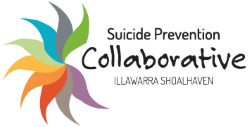We spoke to Edmund Rice College Principal, Peter McGovern, about the benefits of the YAM (Youth Aware of Mental Health) program for school students.

When you first heard about YAM, what excited you about the program?
I first heard about YAM when I received reports about the program and a call from The Catholic Education Office in Wollongong in late 2017. I attended a meeting at the Catholic Education Office of the Wollongong Diocese soon after to hear more details about the YAM program and a follow up discussion about Edmund Rice College involvement with Wollongong systemic schools. We were keen to get involved.
We were interested in bringing the program into Edmund Rice College because it offered a proactive approach to raising awareness of mental health in a collaborative way. Given the rising tide of anxiety amongst young people, the opportunity to be involved in such a program in our school was an opportunity that we could not let pass us by.
We could see that YAM was an evidence-based program targeted to our Year 9 students. We knew as a College we needed to do more in regards to mental health and YAM has provided us with a detailed, scenario-based program to introduce to our students. We were very excited about the initiative that is LifeSpan and the whole community focus to assist with awareness of mental health.
How have the school staff and students responded?
Both the staff and students have been very enthusiastic about YAM. We first introduced YAM to our staff at the end of last year and they all completed the QPR online training. This training provided staff with much needed practical knowledge and skills on how to support and assist the students in difficult situations.
The students have found the program to be very student-centred and hands on. It's a practical way to learn what can sometimes be a difficult topic of discussion. After each session, the boys have finished with very positive comments. They love the open forum and the external facilitators creating an honest and informative learning environment; one that the students do not feel threatened in.
One student said:
"YAM is a program where participants learn about how to spot and help others that are facing mental health issues. The program gave us a refresher about how to deal with these issues with practical techniques, which in class was reinforced with a plausible, scenario-based role-play activity.
"I personally thought that YAM was a great program that allowed us to rethink how we treat others that may be having mental health issues. Because of this program, I believe I am now able to better listen to my friends that need help and devise ways that I can help my friends get better quickly."
What would you say to other Principals who are contemplating YAM as a way to promote mental health and resilience amongst their students?
As we are all aware, mental health is a prevalent area in our schools. We need to address this in a collaborative manner and this is what YAM will provide. As an evidence-based program, YAM quickly gained our attention. After completing both the staff QPR training and having the program delivered to our students, it has been very comforting to know that we have equipped our staff and students with more knowledge, skills and access to support services if needed. We have also noticed it has opened up our communication on mental health across the school environment, creating awareness and reducing the stigma.
Have you had any comments or feedback from parents?
We held an information session for our parent community that was well represented. At the beginning, some parents had reservations about the program, but once hearing what YAM provided for the staff and students, we had overwhelming support from the parent community. Parents particularly like the breaking down of barriers in regards to mental health and also the information around support services that students can access if needed.
